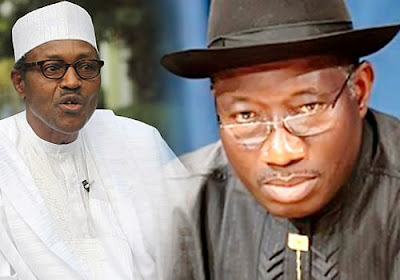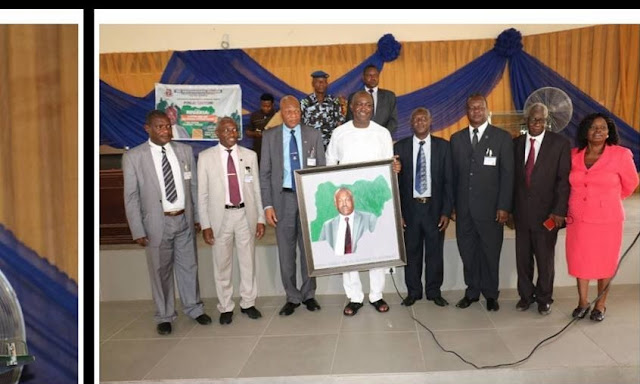6 issues that will shape Jonathan/Buhari campaigns
INVESTIGATIONS have revealed six basic issues that will shape the campaign of Peoples Democratic Party (PDP) presidential candidate, President Goodluck Jonathan and his main opposition from the All Progressives Congress (APC), General Muhammadu Buhari, in the forthcoming 2015 election
The two main contenders in the 2015 presidential contest would slug it out for the third time in February 2015.
Buhari, who had lost the presidential bid three times against PDP candidates, including Jonathan, had, this time, emerged on a larger opposition platform, a merger of three key opposition parties, the Congress for Progressive Change (CPC), Action Congress of Nigeria (ACN) and the All Nigeria’s Peoples Party (ANPP).
It thus appears that the contest between the PDP and the opposition this time would be keener.
The calculations
A number of issues ranging from factual to emotional are ruling the 2015 contest, with either of the two main contenders claiming advantage.
The PDP controls 23 of the 36 states of the federation, with the 24th state, Anambra, which is under the control of the All Progressives Grand Alliance (APGA) also in alliance with the PDP.
On paper, the PDP looks pretty surefooted of victory, going by the number of states under its control.
But opposition figures would say that states under the control of a party can fall in the presidential election. The opposition would give example of states like Bauchi, Sokoto and Jigawa in the 2011 election, where the PDP won the governorship election but lost the presidential contest to the CPC.
The Figures
The calculations have also been done on the basis of the zones. One of the underlining factors that informed the merger of the legacy parties to form the APC was the claim that with a merger of the two most populous geopolitical zones in the country, election could be won and lost.
Founders of APC had calculated that a merger of a party popular in the North-West and the South-West would easily guarantee victory at national elections. The defunct CPC and the ANPP were popular in the North-West states, while the ACN was popular in the South-West. Indeed, the ACN was in control of five of the six South-West states at a time.
According to the Independent National Electoral Commission (INEC), the figures for the 2011 election stand thus: South-West: 14,269,163 out of the 2006 official population figure of 27,722,432; South East: 7,577,212 out of 16,395,555; South-South: 9,474,427 out of 21,044,081; North-West: 19,803,689 out of 35,915,467; North-East: 10,949,689 out of 18,984,299 and North-Central: 10,684,017 out of 18,968,717.
The calculation that a combination of votes from the South-West and North-West could get a majority at the centre had worked in the installation of Honourable Aminu Waziri Tambuwal as the Speaker of the House of Representatives in 2011. But in a presidential contest, there is no guarantee that the votes from any of the zones is locked down by a particular candidate.
For instance, President Goodluck Jonathan won massively in five of the six South-West states in 2011. He lost only in Osun State, where the candidate of the ACN, Nuhu Ribadu, won. That was the situation despite the control exercised by the ACN on the states at the time.
Geopolitical take home and structures
One of the calculations is also based on the structures of the geopolitical zones and their take homes in each of the political parties.
The two main parties believed that raising issues of concern in the geopolitical zones would enhance their voting haul.
For instance, the South-South believes that the time has come for a candidate from the zone to be given opportunity to rule a democratic Nigeria on a two-term basis. Before 2007, the South-South had mounted a campaign for the presidency on the basis of the fact the out of all the zones in the country, it was only the zone that had never tasted power at the centre, despite being the honey pot of the country.
The PDP is, therefore, calculating that its voting haul would be enhanced in the zone with a campaign based on the need to ensure that the zone benefit its constitutionally acceptable two terms in office.
The Yoruba of the South-West had, in 2003, backed Olusegun Obasanjo for a second term, though they refused to vote for him in his first term.
The North-West, which had ruled Nigeria for 38 years of its independence life, is also angling for a return to power since the late President Umaru Yar’Adua died on the seat to yield the position to Jonathan from the South-South. The zone would want to seize the opportunity to return to power by backing Buhari of the APC. But in the calculation of some, the North-West may not lose much if it supports Jonathan, as the zone also produced the incumbent vice president and Jonathan’s running mate, Namadi Sambo.
If the PDP ticket subsists at the polls, it could mean a sure return to power by the zone in 2019, while the South-South would have been granted its two term request.
The South-East, one of the major backers of the South-South presidency, is believed to be sowing the seed for its own future agitation for presidency. The calculation among the South-East leaders is that if they support the South-South in the current bid, the zone would also back it in the future. As for the North-East, the PDP ticket guarantees it the number three slot in the government.
The South-West and North-East could then be the hunting ground. The PDP had calculated that the South-West would produce the number four citizen, Speaker of the House of Representatives, while the North-East would produce the national chairman of the Party. The two zones huge hunting grounds in the sense that it is also a stronghold of the APC, to some extent. The party controls three of the six states in the North-East, while it controls four of the six states in the South-West.
The Issues
One of the issues in question is the religious colouration of the election. There was a huge outcry against fielding of a Muslim/Muslim ticket by the APC. The party had been branded a Muslim party and a Janjaweed arrangement at formation by the PDP. The PDP said the frontline members of the opposition party were all Muslims. The criticisms forced a change of the zoning arrangement at its convention in June, where the South-South produced the national chairman.
The issue of religion had been orchestrated largely because of the person of General Buhari, who had largely been seen as religious bigot. Incidentally, his austere lifestyle has made it difficult to see him linked with any social gathering of mixed religion.
Buhari had, also after leaving office, portrayed himself as an Islamic scholar and a defender of Islamic rights, thus opening himself up to criticisms on religious front. Unlike other Northern politicians like Atiku Abubakar and even General Ibrahim Babangida, many who see Buhari before now remember a man with rigid religious outlook.
Northern candidacy
Is Buhari a Northern candidate for the 2015 election? That is one issue the APC would have to address as the campaigns hot up. The Arewa Consultative Forum (ACF) is doing everything to adopt Buhari as its candidate. While some of its leaders are insisting that no such decision has been taken, some vocal members of the forum have declared Buhari a northern candidate.
Incidentally, such a tag could be counter-productive as it could be interpreted to mean that the candidate would be seized by the North immediately he is voted for. Such a posture could chase away southern voters. In 1964 election, one of the issues that orchestrated the “wetie” was what was described as attempt by the late S. L. Akintola to “sell” the Yoruba to the North. To the voters then, an alliance with the North founded party, Northern Peoples Congress (NPC), amounted to a sellout of the Yoruba. Will branding Buhari a northern candidate not reawaken the ethnic sensitivities in the other zones?
Incidentally, the Nigerian constitution has so made it in a way that no single zone can produce Nigerian president by itself. The current constitution indicates that a presidential candidate must have a spread spanning 24 of the 36 states. The North has 19 states, while the South has 17. The FCT, Abuja is the nation’s federal capital.
Propensity for violence
A major issue is the propensity for violence in the elections. Some observers have said that either way the election goes, the nation could be bugged down by violence. Some said whether the PDP or APC wins, there is propensity to violence.
There is the fear that the militants in the Niger Delta would not take kindly to their kin losing a second term bid to rule Nigeria, when the zone has never had the opportunity to rule before now.
The other factor is that Buhari and his supporters in the APC have already sensitissed the nation with words like “blood of baboons and monkeys would flow” credited to Buhari and the claim credited to Malam Nasir el-Rufai indicating that the 2015 election would witness violence as well as claims by the Rivers State governor, Chief Rotimi Amaechi, that the opposition would form a parallel government if they lose the 2015 election.
All the claims appear to be pointing to a readiness of both arms of the campaign to unleash violence.
The fear have heightened following a peep at the fallout of the 2011 election.
Violence erupted in some northern states, following the outcome of the election which was adjudged as free and fair.
A number of corps members who worked with INEC were killed by northern street urchins, who were believed to be protesting Buhari’s loss.
There is thus the fear that even a free and fair election may not be enough safeguard against violence.
http://tribune.com.ng/news/top-stories/item/25333-6-issues-that-will-shape-jonathan-buhari-campaigns





Comments
Post a Comment